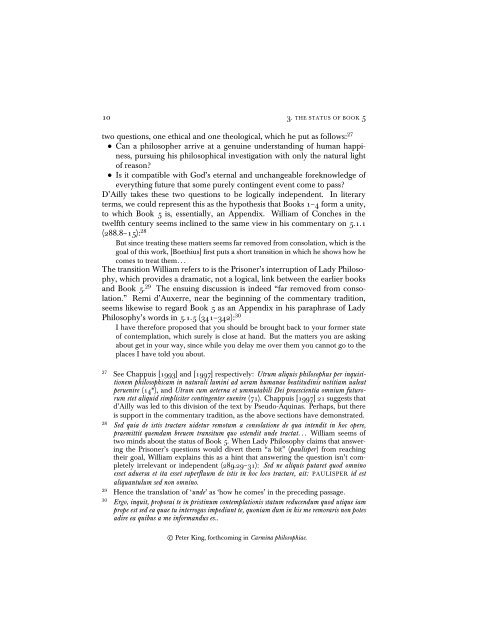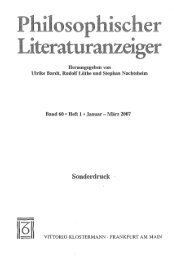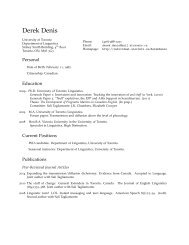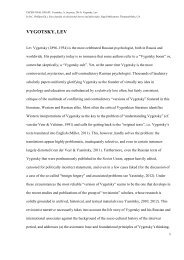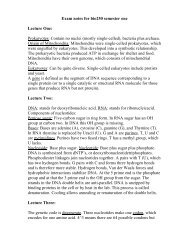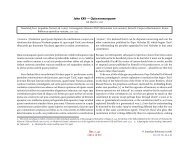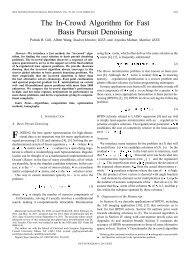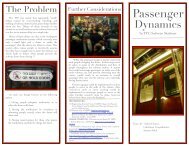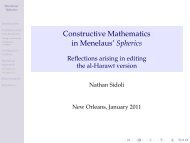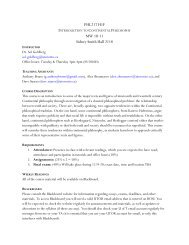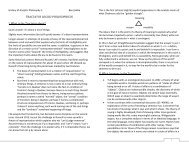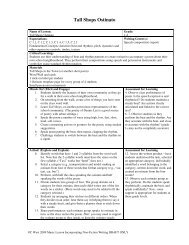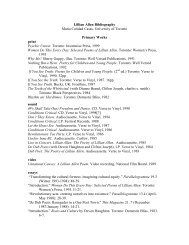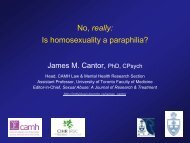BOETHIUS: FIRST OF THE SCHOLASTICS* - University of Toronto
BOETHIUS: FIRST OF THE SCHOLASTICS* - University of Toronto
BOETHIUS: FIRST OF THE SCHOLASTICS* - University of Toronto
Create successful ePaper yourself
Turn your PDF publications into a flip-book with our unique Google optimized e-Paper software.
10 3. <strong>THE</strong> STATUS <strong>OF</strong> BOOK5<br />
two questions, one ethical and one theological, which he put as follows: 27<br />
• Can a philosopher arrive at a genuine understanding <strong>of</strong> human happiness,<br />
pursuing his philosophical investigation with only the natural light<br />
<strong>of</strong> reason?<br />
• Is it compatible with God’s eternal and unchangeable foreknowledge <strong>of</strong><br />
everything future that some purely contingent event come to pass?<br />
D’Ailly takes these two questions to be logically independent. In literary<br />
terms, we could represent this as the hypothesis that Books 1–4 form a unity,<br />
to which Book 5 is, essentially, an Appendix. William <strong>of</strong> Conches in the<br />
twelfth century seems inclined to the same view in his commentary on 5.1.1<br />
(288.8–15): 28<br />
But since treatingthesemattersseemsfarremovedfrom consolation, which is the<br />
goal<strong>of</strong> thiswork, [Boethius]first putsashort transitionin which heshowshow he<br />
comes to treat them...<br />
ThetransitionWilliamreferstoisthePrisoner’sinterruption <strong>of</strong>LadyPhilosophy,<br />
which provides a dramatic, not a logical, link between the earlier books<br />
and Book 5. 29 The ensuing discussion is indeed “far removed from consolation.”<br />
Remi d’Auxerre, near the beginning <strong>of</strong> the commentary tradition,<br />
seems likewise to regard Book 5 as an Appendix in his paraphrase <strong>of</strong> Lady<br />
Philosophy’s words in 5.1.5 (341–342): 30<br />
I have therefore proposed that you should be brought back to your former state<br />
<strong>of</strong> contemplation, which surely is close at hand. But the matters you are asking<br />
about get in your way, since while you delay me over them you cannot go to the<br />
places I have told you about.<br />
27 See Chappuis [1993] and [1997] respectively: Utrum aliquis philosophus per inquisitionem<br />
philosophicam in naturali lumini ad ueram humanae beatitudinis notitiam ualeat<br />
peruenire (14*), and Utrum cum aeterna et ummutabili Dei praescientia omnium futurorum<br />
stet aliquid simpliciter contingenter euenire (71). Chappuis [1997] 21 suggests that<br />
d’Ailly was led to this division <strong>of</strong> the text by Pseudo-Aquinas. Perhaps, but there<br />
is support in the commentary tradition, as the above sections have demonstrated.<br />
28 Sed quia de istis tractare uidetur remotum a consolatione de qua intendit in hoc opere,<br />
praemittit quemdam breuem transitum quo ostendit unde tractat... William seems <strong>of</strong><br />
two minds about the status<strong>of</strong> Book 5. WhenLady Philosophy claims that answering<br />
the Prisoner’s questions would divert them “a bit” (paulisper) from reaching<br />
their goal, William explains this as a hint that answering the question isn’t completely<br />
irrelevant or independent (289.29–31): Sed ne aliquis putaret quod omnino<br />
esset aduersa et ita esset superfluum de istis in hoc loco tractare, ait: PAULISPER id est<br />
aliquantulum sed non omnino.<br />
29 Hence the translation <strong>of</strong> ‘unde’ as ‘how he comes’ in the preceding passage.<br />
30 Ergo, inquit, proposui te in pristinum contemplationisstatum reducendum quod utique iam<br />
propeestsed eaquaetuinterrogasimpediuntte,quoniamdumin hismeremorarisnon potes<br />
adire ea quibusa me informanduses..<br />
c○ Peter King, forthcoming in Carmina philosophiae.


